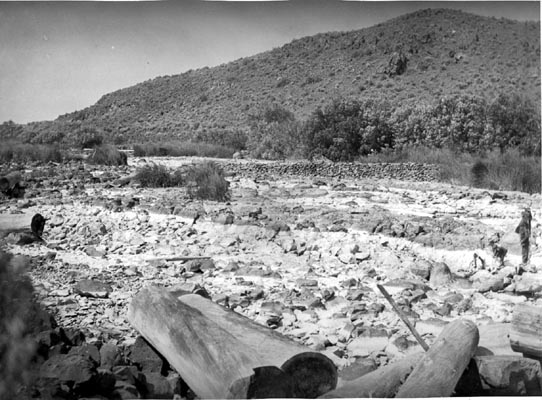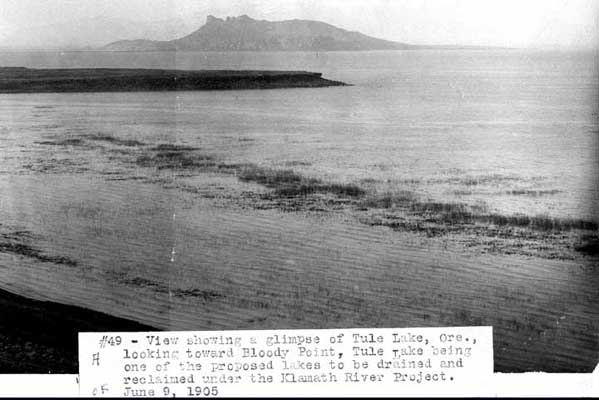
Our Klamath Basin Water Crisis
Upholding rural Americans' rights to grow food,
own property, and caretake our wildlife and natural resources.

Our Klamath Basin
Water Crisis
Upholding rural Americans' rights to grow food,
own property, and caretake our wildlife and natural resources.
https://www.heraldandnews.com/news/local_news/complex-legal-issues-swirl-in-klamath-water-debate/article_a7c7a29f-8be9-5f1e-a83c-6ffe2f5fb578.html
| |||||||||
KBC NOTE:
|
||
| < Link River Around 1900 Link River, between Upper Klamath Lake and Lake Ewauna, occasionally went dry before the Klamath Project was built. | 1905 - Tule Lake, before the Klamath Project was built, was up to 30' feet deep. It was a navigable lake. That's why on our deeds, signed by US President, we were deeded 2+ acre feet of water for our crops, appurtenant to our land, reuse it 7 times, then all the runoff we pump uphill, at our expense, divert it out of our closed basin, through the Tule Lake and Lower Klamath Refuges, and into the Klamath River. | |
 |
 |
|